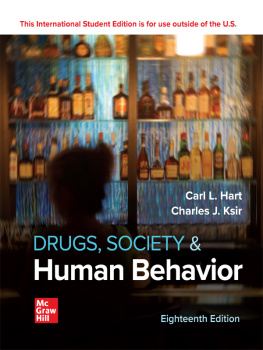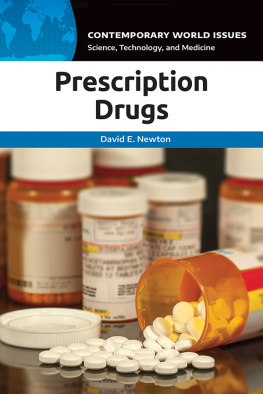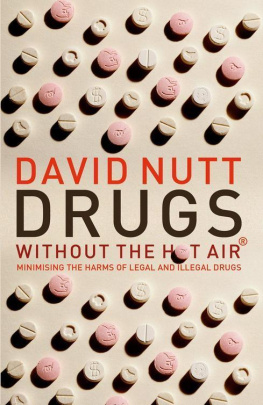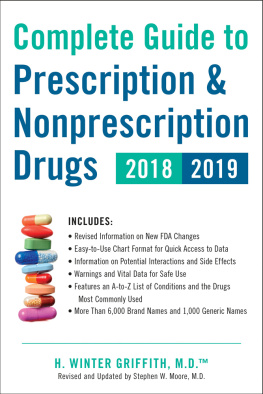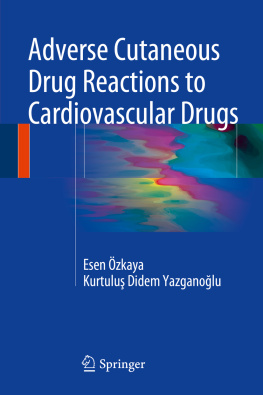Peter C Gtzsche has asserted his right under the Copyright, Designs and Patents Act 1988 to be identified as the author of this work.
The author and publisher shall have no liability or responsibility to any person or entity regarding any loss or damage incurred, or alleged to have incurred, directly or indirectly, by the information contained in this book.
All rights reserved. No part of this publication may be reproduced, stored in a retrieval system or transmitted, in any form or by any means, electronic, mechanical, photocopying, recording or otherwise, without the prior permission of the copyright owner.
A catalogue record for this book is available from the British Library.
Foreword by Richard Smith
There must be plenty of people who shudder when they hear that Peter Gtzsche will be speaking at a meeting or see his name on the contents list of a journal. He is like the young boy who not only could see that the emperor had no clothes but also said so. Most of us either cannot see that the emperor is naked or will not announce it when we see his nakedness, which is why we badly need people like Peter. He is not a compromiser or a dissembler, and he has a taste for strong, blunt language and colourful metaphors. Some, perhaps many, people might be put off reading this book by Peters insistence on comparing the pharmaceutical industry to the mob, but those who turn away from the book will miss an important opportunity to understand something important about the world and to be shocked.
Peter ends his book with a story of how the Danish Society for Rheumatology asked him to speak on the theme Collaboration with the drug industry. Is it THAT harmful? The original title was Collaboration with the drug industry. Is it harmful? but the society thought that too strong. Peter started his talk by enumerating the crimes of the meetings sponsors. Roche had grown by selling heroin illegally. Abbot blocked Peters access to drug regulators unpublished trials that eventually showed that a slimming pill was dangerous. UCB too concealed trial data, while Pfizer had lied to the Food and Drug Administration and been fined $2.3 billion in the United States for promoting off label use of four drugs. Merck, the last sponsor, had, said Peter, caused the deaths of thousands of patients with its deceptive behaviour around a drug for arthritis. After this beginning to his talk he launched into his condemnation of the industry.
You can imagine being at the meeting, with the sponsors spluttering with rage and the organisers acutely embarrassed. Peter quotes a colleague as saying that he felt my direct approach might have pushed some people away who were undetermined. But most of the audience were engaged and saw legitimacy in Peters points.
The many people who have enthusiastically supported routine mammography to prevent breast cancer deaths might empathise with the sponsors because Peter has been critical of them and published a book on his experiences around mammography. The important point for me is that Peter was one of few people criticising routine mammography when he began his investigations but despite intense attacks on him has been proved largely right.
He did not have any particular view on mammography when he was asked by the Danish authorities to look at the evidence, but he quickly concluded that much of the evidence was of poor quality. His general conclusion was that routine mammography might save some lives, although far fewer than enthusiasts said was the case, but at the cost of many false positives, women undergoing invasive and anxiety-creating procedures for no benefit, and of overdiagnosis of harmless cancers. The subsequent arguments around routine mammography have been bitter and hostile, but Peters view might now be called the orthodox view. His book on the subject shows in a detailed way how scientists have distorted evidence in order to support their beliefs.
I have long recognised that science is carried out by human beings not objective robots and will therefore be prone to the many human failings, but I was shocked by the stories in Peters book on mammography.
Much of this book is also shocking and in a similar way: it shows how science can be corrupted in order to advance particular arguments and how money, profits, jobs and reputations are the most potent corrupters.
Peter does acknowledge that some drugs have brought great benefits. He does so in one sentence: My book is not about the well-known benefits of drugs such as our great successes with treating infections, heart diseases, some cancers, and hormone deficiencies like type 1 diabetes. Some readers may think this insufficient, but Peter is very clear that this is a book about the failures of the whole system of discovering, producing, marketing and regulating drugs. It is not a book about their benefits.
Many of those who read this book will ask if Peter has over-reached himself in suggesting that the activities of the drug industry amount to organised crime. The characteristics of organised crime, racketeering, is defined in US law as the act of engaging repeatedly in certain types of offence, including extortion, fraud, federal drug offenses, bribery, embezzlement, obstruction of justice, obstruction of law enforcement, tampering with witnesses and political corruption. Peter produces evidence, most of it detailed, to support his case that pharmaceutical companies are guilty of most of these offences.
And he is not the first to compare the industry with the Mafia or mob. He quotes a former vice-president of Pfizer, who has said:
It is scary how many similarities there are between this industry and the mob. The mob makes obscene amounts of money, as does this industry. The side effects of organized crime are killings and deaths, and the side effects are the same in this industry. The mob bribes politicians and others, and so does the drug industry
The industry has certainly fallen foul of the US Department of Justice many times in cases where companies have been fined billions. Peter describes the top 10 companies in detail, but there are many more. Its also true that they have offended repeatedly, calculating perhaps that there are large profits to be made by flouting the law and paying the fines. The fines can be thought of as the cost of doing business like having to pay for heat, light and rent.
Many people are killed by the industry, many more than are killed by the mob. Indeed, hundreds of thousands are killed every year by prescription drugs. Many will see this as almost inevitable because the drugs are being used to treat diseases that themselves kill. But a counter-argument is that the benefits of drugs are exaggerated, often because of serious distortions of the evidence behind the drugs, a crime that can be attributed confidently to the industry.
The great doctor William Osler famously said that it would be good for humankind and bad for the fishes if all the drugs were thrown into the sea. He was speaking before the therapeutic revolution in the middle of the 20th century that led to penicillin, other antibiotics, and many other effective drugs, but Peter comes close to agreeing with him and does speculate that we would be better off without most psychoactive drugs, where the benefits are small, the harms considerable, and the level of prescribing massive.


